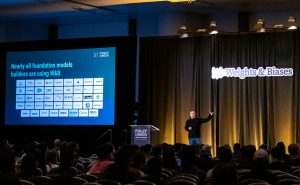CAMBRIDGE — Arm‘s involvement in the World Economic Forum‘s 2025 Annual Meeting in Davos highlighted the critical importance of partnerships between academic institutions and the private sector in accelerating the growth of artificial intelligence (AI). The session titled “Collaboration for the Intelligent Age” underscored how such collaborations are essential in shaping the future of AI by marrying cutting-edge research with practical, real-world applications.
At the panel discussion, Arm leaders joined some of the world’s foremost academic minds to explore the current and future impact of AI. Arm’s commitment to fostering partnerships with academic institutions is a core element of its strategy to drive innovation in AI. As AI research continues to evolve, universities provide the theoretical framework, while industry offers the infrastructure and tools needed to implement these ideas effectively.
Ami Badani, Arm’s Chief Marketing Officer, emphasized the company’s strong track record of collaborations with universities to propel AI technology forward. A notable example is the collaboration between the U.S. and Japan, with private sector support from Arm, Microsoft, and SoftBank, which led to two major AI-focused university-corporate partnerships worth $110 million.
The panelists, including Farnam Jahanian, President of Carnegie Mellon University, Kohei Itoh, President of Keio University, and Eric Xing, President of the Mohamed bin Zayed University of Artificial Intelligence, all underscored the immense value of these academic-industry synergies. They discussed how partnerships not only drive technological advancements but also enhance the education of students, ensuring that the next generation of professionals is well-prepared for an AI-powered future.
The session also focused on the practical applications of AI, which the panel agreed would define 2025 as the “year of practicality for AI.” According to Jahanian, businesses are already integrating AI into their operations to improve workflows and drive efficiencies, while AI’s role in healthcare research, particularly in accelerating drug development, was also highlighted.
As Arm’s upcoming AI Barometer survey shows, over 90% of global business leaders have begun to implement AI in their organizations. This rapid adoption demonstrates how quickly AI is becoming a commercial reality, not just a futuristic promise. The panel further discussed the need for educational institutions to update curricula to reflect the demand for AI skills, both technical and interpersonal.
With AI driving the creation of 170 million new jobs by 2030, as noted by Badani, universities have a crucial role to play in preparing the workforce for these opportunities. The ability to use AI tools effectively and collaborate with them will be key skills for the future.
Ultimately, Arm’s involvement in fostering academic and industry collaboration is essential to unlocking AI’s full transformative potential. By combining academic research with practical applications, Arm is helping to shape a future where AI can be harnessed for societal good.



















